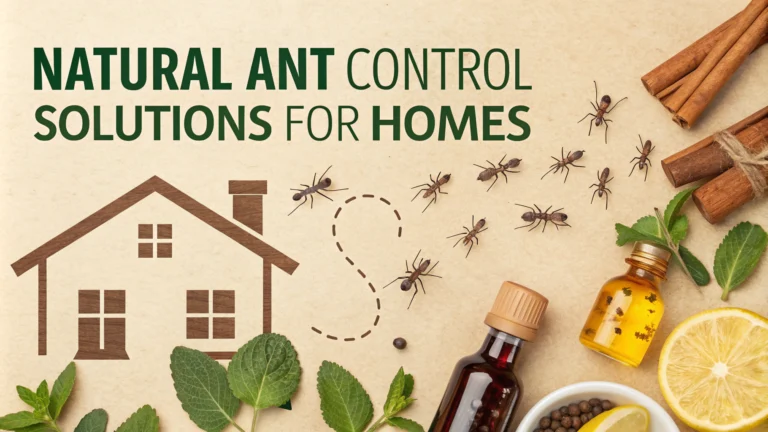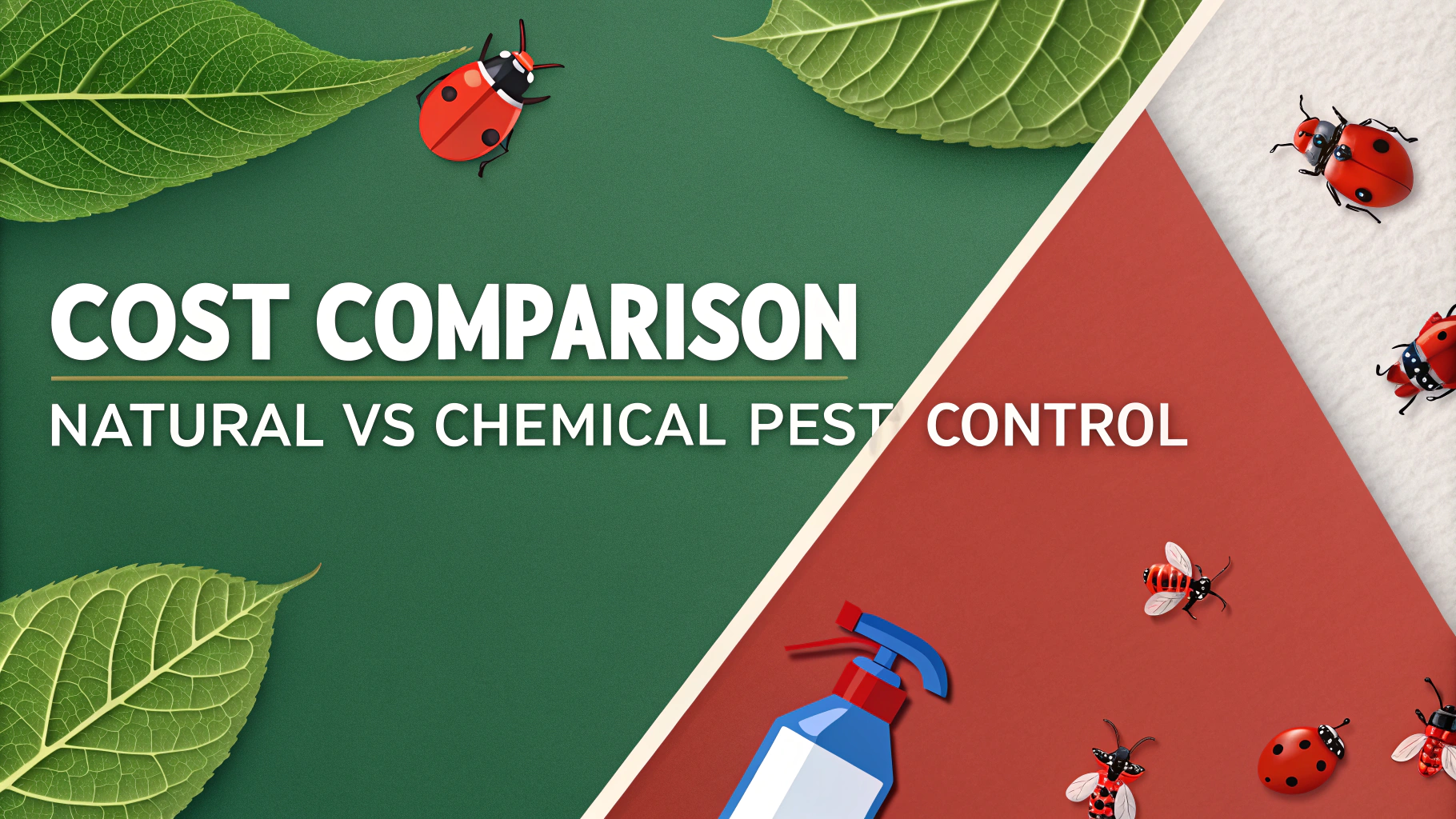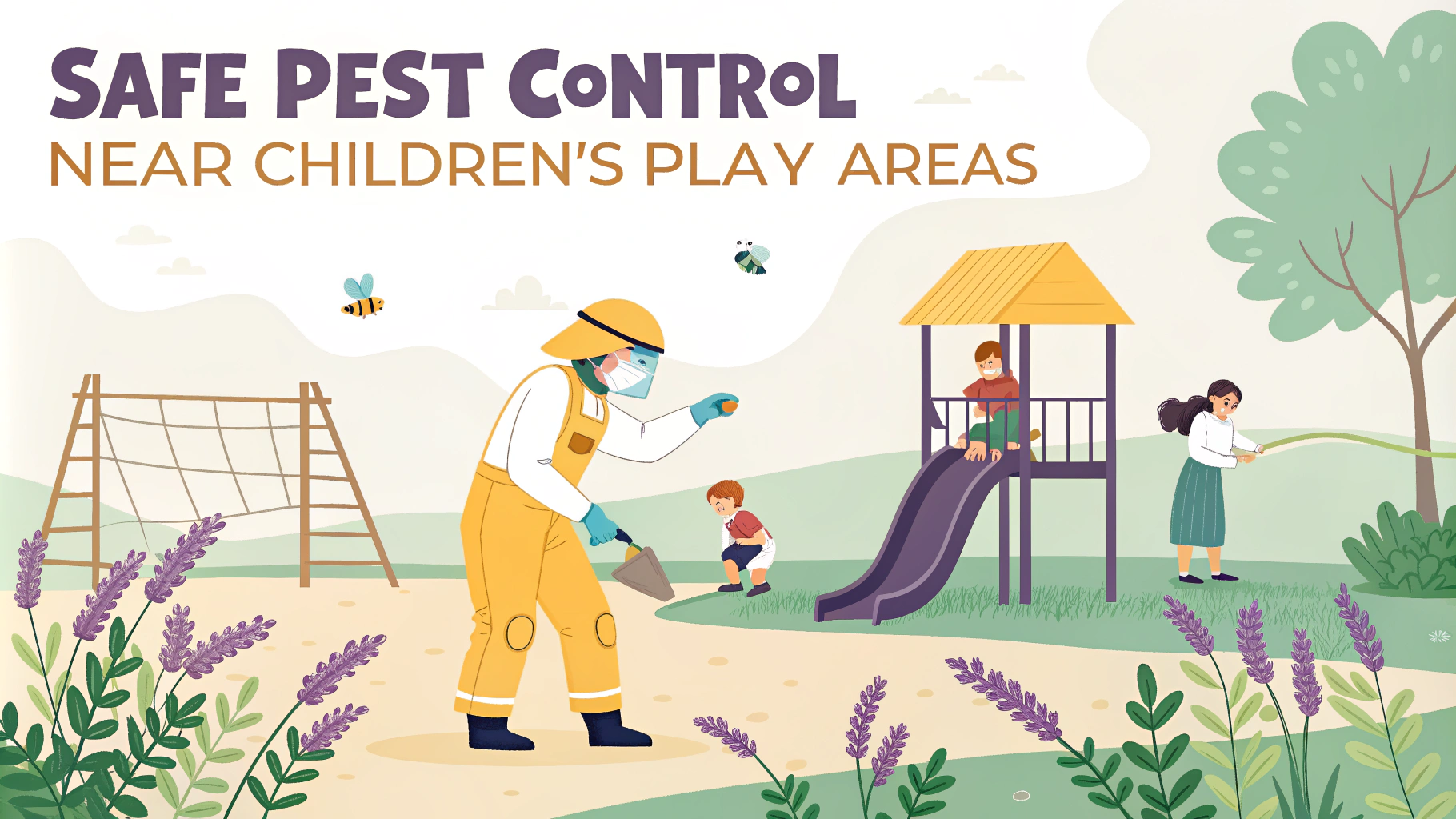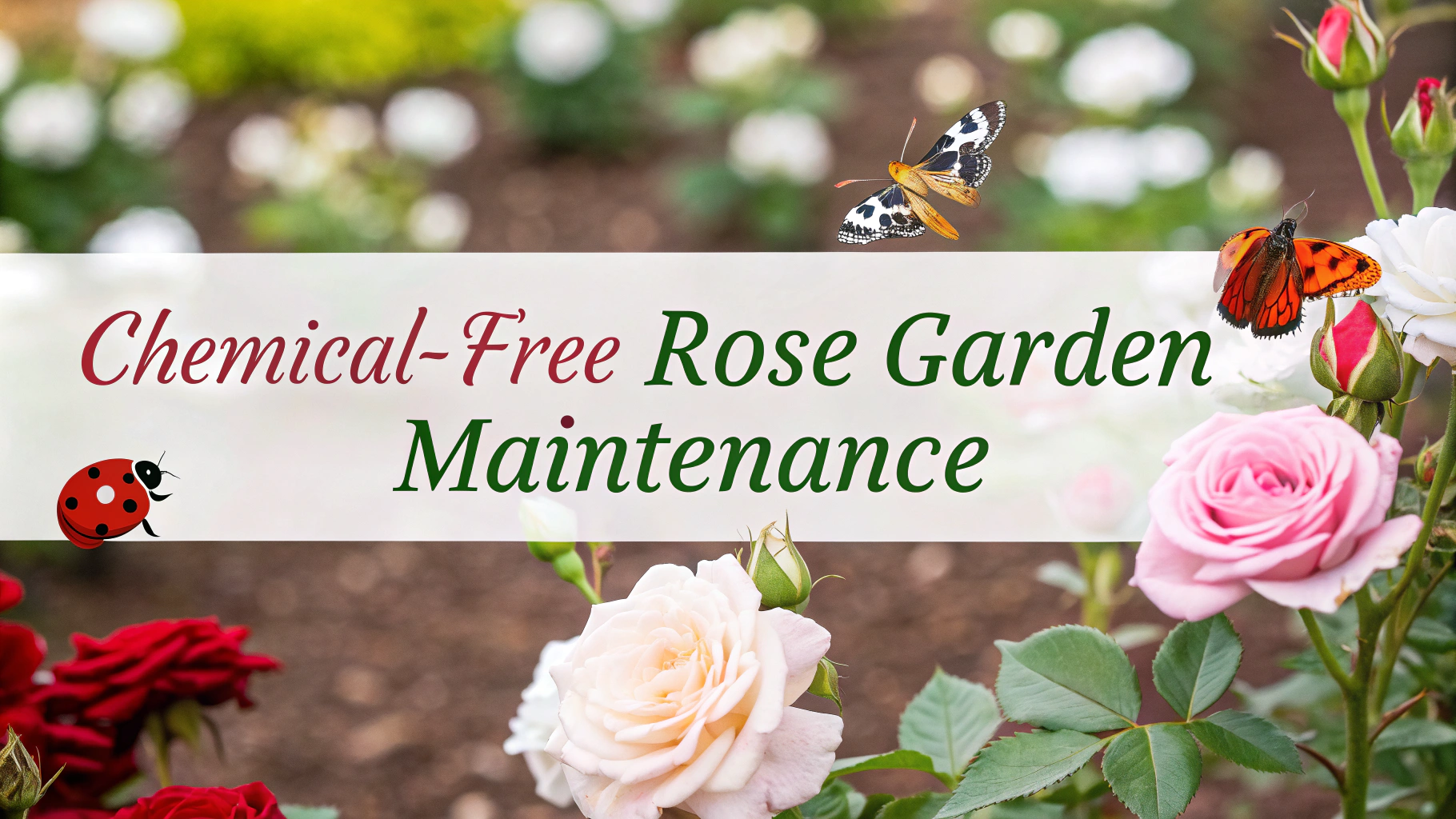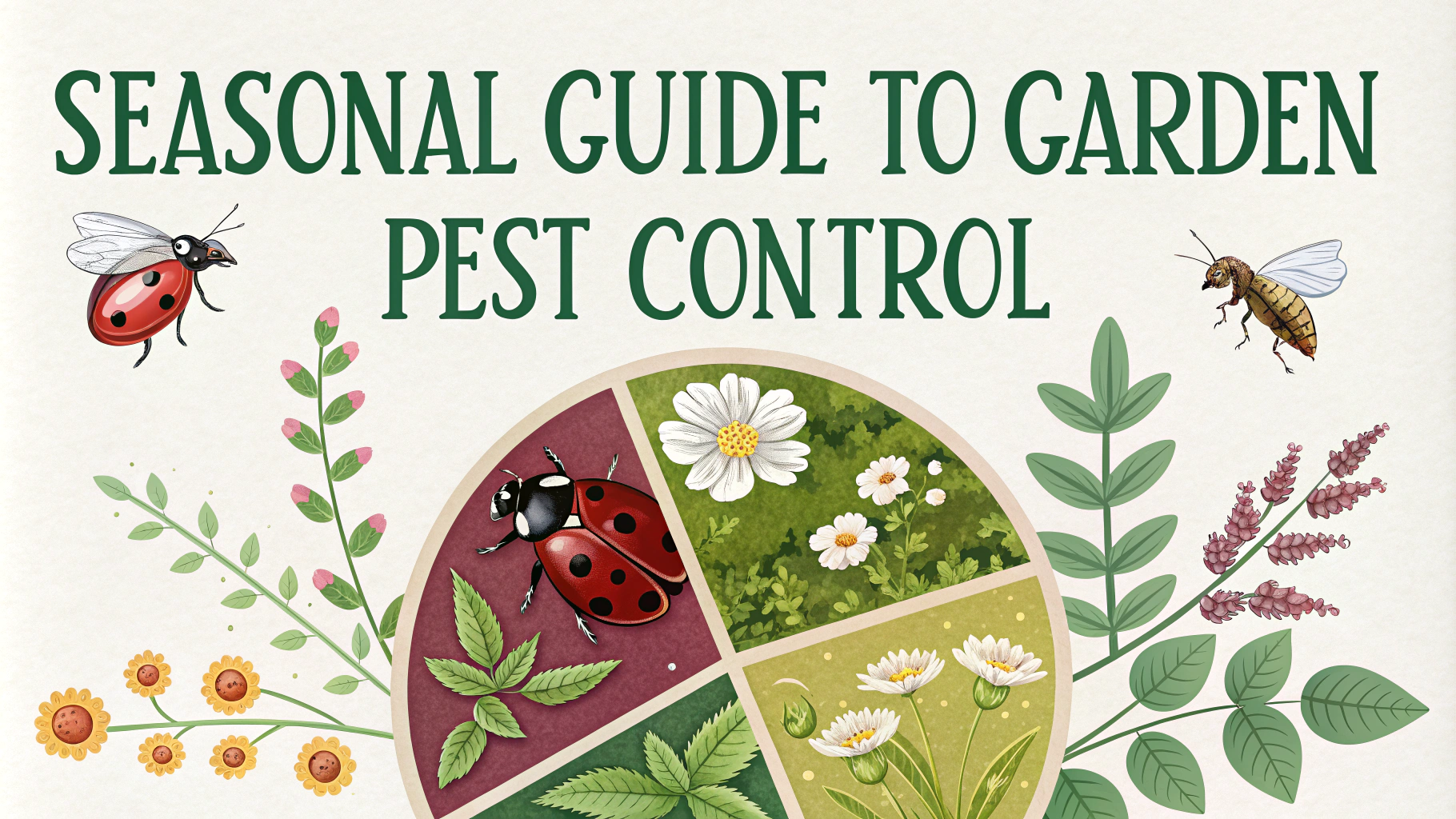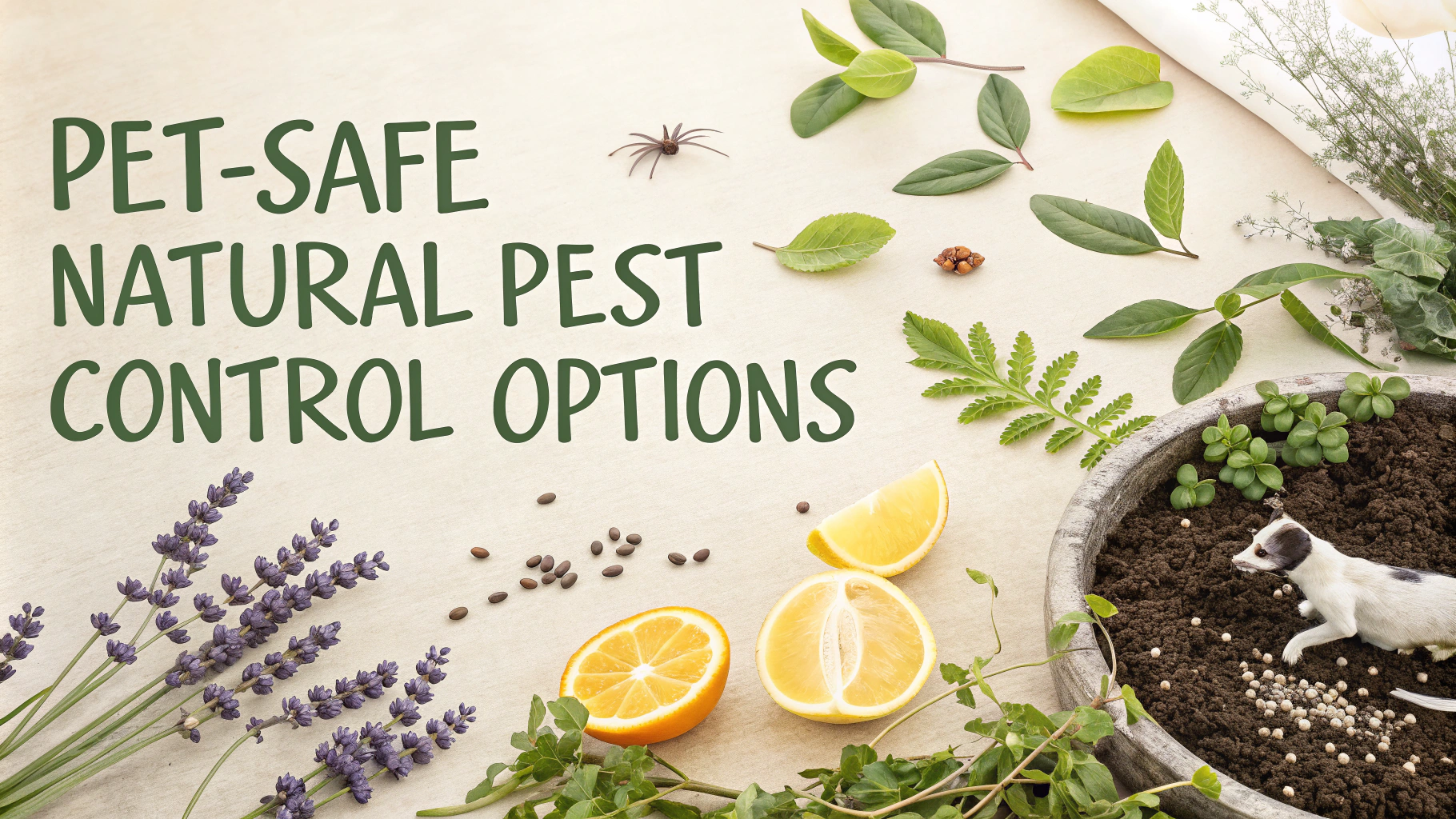Natural ant control methods offer safe, effective ways to keep ants out of your home without using harmful chemicals.
Quick Indoor Prevention Tips
- Seal food in airtight containers
- Clean spills and crumbs immediately
- Keep pet food bowls clean
- Fix leaky faucets and pipes
- Seal entry points around windows and doors
Natural Ant Repellents
These common household items naturally deter ants:
- Vinegar Solution: Mix equal parts water and white vinegar in a spray bottle
- Essential Oils: Peppermint, tea tree, or citrus oils mixed with water
- Diatomaceous Earth: Sprinkle food-grade DE around entry points
- Cinnamon: Place ground cinnamon or cinnamon sticks near ant trails
- Borax: Mix with sugar to create a natural ant bait
Outdoor Prevention Strategies
- Remove wood piles and debris from house perimeter
- Trim branches touching your house
- Create a barrier with coffee grounds or citrus peels
- Maintain a dry perimeter around foundation
Safe DIY Ant Baits
| Ingredient | Method |
|---|---|
| Borax + Sugar | Mix 1:3 ratio, place near ant trails |
| Baking Soda + Sugar | Equal parts, sprinkle along entry points |
| Cornmeal | Spread near ant colonies |
When to Call Professional Help
Contact a pest control expert if you notice:
- Multiple ant colonies
- Carpenter ant damage
- Persistent infestations despite DIY methods
- Signs of structural damage
For severe infestations, contact your local pest control authority or the National Pest Management Association at 1-800-678-6722.
Monitor results after implementing these methods and adjust strategies as needed for optimal ant control.
Monitoring and Maintenance
- Keep a log of ant activity patterns
- Document which methods work best
- Inspect entry points monthly
- Rotate repellent methods every few weeks
- Continue cleaning practices even after ants are gone
Seasonal Considerations
Spring
- Inspect for new entry points after winter
- Clear winter debris from foundation
- Apply preventive measures before peak ant season
Summer
- Increase monitoring during peak activity
- Keep indoor areas extra clean
- Check outdoor water sources
Environmental Impact
- Natural methods protect beneficial insects
- Safe for pets and children
- No groundwater contamination
- Biodegradable solutions
Conclusion
Natural ant control requires consistent effort but provides long-term, environmentally friendly results. Success comes from combining multiple methods and maintaining good prevention practices. Regular monitoring and adaptation of techniques ensure lasting ant control while keeping your home safe and chemical-free.
Remember: Prevention is always easier than elimination. Maintain cleanliness and seal entry points for best results.
FAQs
- What are the most effective natural ingredients for controlling ants?
The most effective natural ant deterrents include diatomaceous earth, vinegar, essential oils like peppermint and tea tree, borax mixed with sugar, and cinnamon. These substances either repel ants or disrupt their scent trails. - How does diatomaceous earth work to control ants?
Diatomaceous earth works by damaging the exoskeletons of ants through microscopic sharp edges, causing them to dehydrate and die. It’s safe for humans and pets when food-grade quality is used. - Can coffee grounds really keep ants away?
Yes, used coffee grounds can repel ants due to their strong scent which disrupts ants’ pheromone trails and natural caffeine content which acts as a natural pesticide. - What’s the most effective natural ant barrier for home entrances?
A combination of food-grade diatomaceous earth and essential oils like peppermint or citrus creates the most effective natural barrier. Chalk lines and bay leaves can also serve as temporary barriers. - How can I locate and eliminate an ant colony naturally?
Track ant trails to their entry point, then use a mixture of borax and sugar or a vinegar solution to eliminate the colony. The worker ants will carry the solution back to the nest, affecting the entire colony. - Are there specific plants that naturally repel ants?
Yes, mint, lavender, rosemary, tansy, and marigolds naturally repel ants. Planting these around your home’s foundation can create a natural barrier. - How effective is vinegar as an ant deterrent?
White vinegar is highly effective both as a repellent and cleaner, as it eliminates ant pheromone trails and creates an inhospitable environment. A 50/50 solution of water and vinegar works best. - What natural solutions are safe to use around food areas?
Food-grade diatomaceous earth, vinegar solutions, bay leaves, and cinnamon are all safe to use around food preparation areas. These natural deterrents won’t contaminate food surfaces. - How long do natural ant control methods typically last?
Natural solutions typically need more frequent reapplication than chemical alternatives, usually every 1-2 weeks. Weather conditions and ant species can affect their longevity. - What preventive measures work best with natural ant control?
Sealing entry points with caulk, keeping areas clean and dry, storing food in airtight containers, and maintaining a dry perimeter around your home’s foundation work best alongside natural deterrents.
